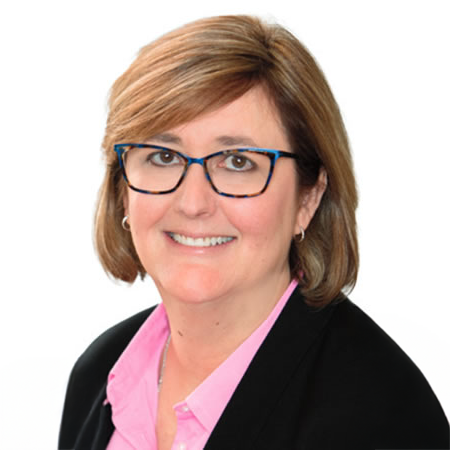July 2025 | Amy Keller, Executive Editor, Florida Trend
“Why not change the world?” is more than a mantra for Jason Eichenholz — it’s a way of life.
Over the years, he’s led the development of breakthrough technology for cancer detection, detecting explosives and new drug delivery systems. Over the past decade, Luminar, a company he co-founded in 2012, became one of the leading providers of lidar technology for driverless vehicles — and made him wealthier than he ever imagined.
But it was never about the money. It was about his son, Jonathan, who has autism. “My main motivation for Luminar was to be able to provide safe ubiquitous transportation for him and his countless friends, because I couldn’t just put him in an Uber, and he’s not going to get his driver’s license,” says Eichenholz.
Jonathan is 20 now and has come a long way since his diagnosis at age 3. He was nonverbal then. Today, Eichenholz says, “he’ll talk your ear off for an hour.” But like many parents with children on the spectrum, Eichenholz spent years lying awake at night worrying about what would happen to Jonathan after he’s gone.
That worry all but evaporated in 2020 when Luminar went public in a $3.4-billion SPAC merger. Jonathan finally had options. He could live in a garage apartment with 24/7 care, or Eichenholz figured he could buy a house in his neighborhood and create a group home for Jonathan and others with a full-time caretaker.
But then, Eichenholz started thinking bigger. Why stop with one house? Why not build a community where hundreds of young adults like Jonathan could both live and work, building lives of dignity and purpose.
Today, he’s working on building that place through his nonprofit, Jonathan’s Landing.
Last year, the Orlando organization kicked off its Techtonic Workforce Academy, which trains neurodiverse individuals how to repair cellphones and tablets. With $1 million from the state Legislature, Techtonic has been hosting 2.5-hour “SkillCircuit” events across Central Florida, to help young people explore the field of tech repair. If there’s a spark, they can start working on microcredentials toward their WISE certification, the industry-recognized standard for device repair technicians.
With a 20,000-technician shortage across the country, it’s an indemand career. Since November, 250 individuals have participated in the circuits, four have earned certifications, and 50 are working on their next steps toward micro-credentials.
Next up is culinary training. “We’ve got the corporate headquarters for Darden and Red Lobster, and we’re the hospitality capital of the United States,” says Eichenholz. “There’s plenty of jobs in preparing food. … Let’s give them an opportunity to do more than wrapping napkins, bussing tables and washing dishes.”
For the housing element, Eichenholz has his sights set on Lake Nona in southeast Orlando. He envisions a campus with housing for 500 residents and another 50 resident assistants who are earning degrees in physical therapy, occupational therapy, speech therapy, social work and other fields at the University of Central Florida. The college students will get free room-and-board in exchange for the support they provide to residents, and they’ll complete a capstone project for course credit to “make Jonathan’s Landing a better place.”
Technology will be a vital component. “We’re looking at major partners like Samsung to help us with that technology,” Eichenholz says. He’s also talking with Beep, an autonomous shuttle company that operates a fleet in Lake Nona powered by the lidar systems that Luminar created.
Another vital component: revenue streams generated by the organization’s social enterprises. For example, Techtonic recently launched a “million device drive” for donations of new and used mobile devices for its repair training program. Any profits from devices that are refurbished and sold will be rolled back into the organization to offset the costs of services provided to families.
Eichenholz acknowledges that his business acumen and Rolodex have helped smooth the way for Jonathan’s Landing. “Because I’ve had business success, I get to swing the bat pretty hard, and people only roll their eyes a little bit,” he says. But he also believes there are “other Jason Eichenholzes” in Miami, Silicon Valley and other places who can leverage the magic of their regions and create something similar.
“We want to share this with the world for free as an open-source project so that the model can be tweaked, perfected, individualized for another city,” he says. “Because there’s a tsunami of kids coming out of the system, and they deserve more than what’s being offered to them today.”
The tech mogul wants to change the world for generations to come. “This will be my legacy on how I made the world a better place, to ensure that the families that come after us have something where they felt like they were taken care of and seen.”
— Amy Keller, Executive Editor, akeller@floridatrend.com
Amy Keller
Amy Keller is executive editor of Florida Trend and oversees the magazine’s editorial department. Keller’s writings have also appeared in Salon, The New Republic, Broadcasting & Cable magazine, REALTOR Magazine, the Atlanta Jewish Times, the Detroit Jewish News and other publications. Keller graduated from The Ohio State University with a degree in journalism.













